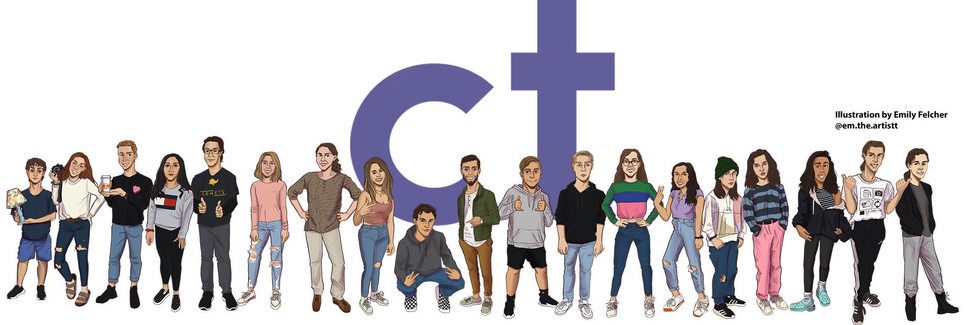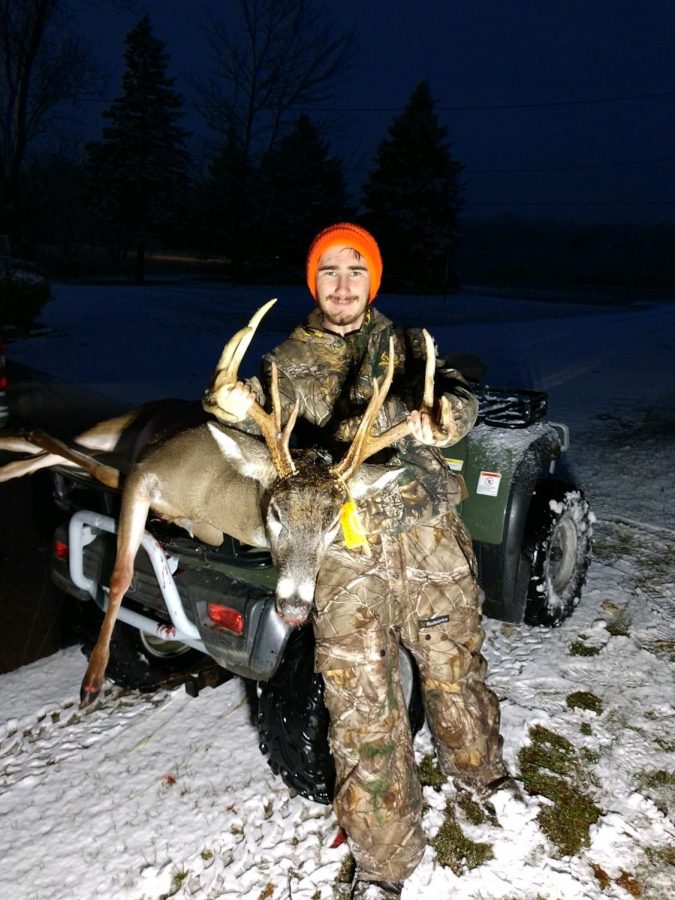Shortage of Hunters?
Mason Sears (12) with his 11 point Whitetail buck taken on opening day of the firearm season. Mason Sears was raised to be an outdoorsmen by his family.
December 19, 2018
Another year has gone by, and another hunting season is in the history books. The season started on Oct. 1 and ran up to the Dec. 17 (excluding the late doe season, ending on Jan. 1). The season may have been another good one, but the number of hunters, not just in the state, but in the country, is dropping.
According to an article by Outdoor Life (Click Here), hunting participation peaked in 1982, when nearly 17 million hunters purchased 28.3 million licenses. Hunter numbers have steadily declined since. The hunting community lost 2.2 million hunters between 2011 and 2016 alone, according to the National Survey of Hunting, Fishing, and Wildlife-Associated Recreation, a report issued by the U.S. Fish and Wildlife Service. As for the state of MI, statistics from the MI Department of Natural Resources (2017 Hunting Stats) show that in 2017, 620,932 people purchased a license to hunt deer in Michigan. The number of people buying a license in 2017 decreased by 2.1% from 2016 (634,021 people purchased a license in 2016). There could be a lot of reasons for the decline, but one of the most common reasons was the baby boomers. Outdoor Life wrote that baby boomers (anyone born between 1946 and 1964) make up roughly a third of all hunters nationally. The range would be around the ages of 54-72. What can be done to prevent the drop in hunters?
The future of hunting lies in the hands of the younger generations. Parents must pass down the tradition of hunting to their kids.
“I think it [decline of hunters] is sad on one hand and a good thing,” Mason Sears, GLHS senior and local hunter, said. “It’s sad because of the memories of shooting big bucks and the rush of it will be lost to most people. It is already lost to most people. So, I think it will be a sad time when the hunters are far and few between. It is also good on the other hand because there will be more big buck growth and that’s what you want, all of the little bucks to get passed up so they can turn into a trophy. All 150 inch deer were button bucks at one point.”
Sears also expressed how it feels to be a young person that continues the tradition of hunting.
“To me, it feels like most everybody that doesn’t do it [hunt] thinks it’s weird,” Sears said. “There is nothing like putting your sights on a big buck with your adrenaline pumping and to make a shot and bring it [the deer] home is an awesome sense of accomplishment that some of my peers will never know.”
The hunting world needs younger people like Sears to continue the tradition of hunting and evolve the sport.
“Yes, [more kids are needed] because it would help teach them how to use firearms properly and it gets the children outdoors so they can get off of the phones,” Colin Bates, junior and hunter said.
Over thousands of years, hunting has evolved from plain survival to a traditional sport. With older generations stepping out of the sport, the future falls into the hands of the newer generations. However, if young people like Sears and Bates continue the tradition of hunting, the sport is in good hands.

